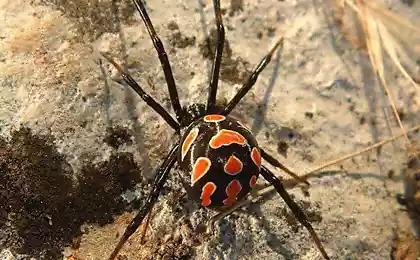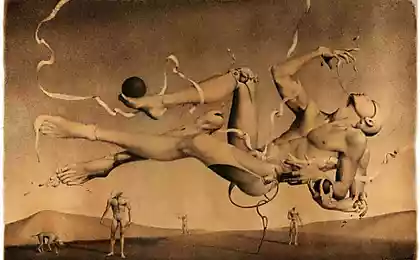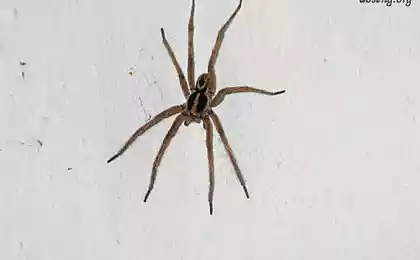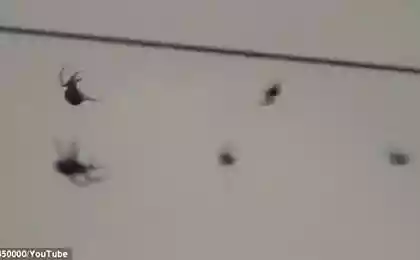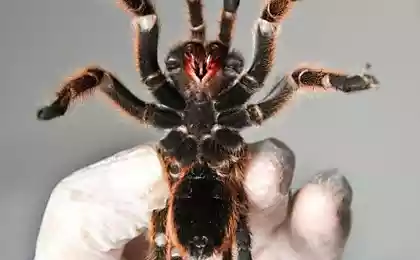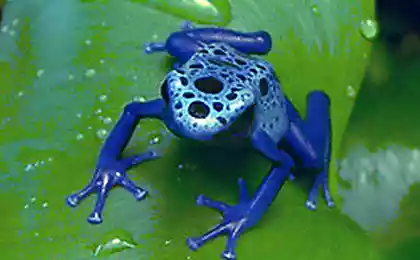571
Because of the tiny size of these spiders, the brain does not fit in their minds, and occupies 80% of the body

This discovery was made by scientists from the Smithsonian Tropical Research Institute. They studied the nervous system of dozens of species of tropical spiders, whose size is less than a pinhead. Arachnologists task was to understand how the miniature size of the brain affects the behavior of arthropods. Vsislo William (William Wcislo), Fellow of the Institute, explained that despite its small size, the spiders weave a web and perform other fairly complex activities. Consequently, with decreasing size of the body is not reduced brain - a phenomenon called Haller's rule: the small size of the living body placement area increases brain cells, but not the brain. For example, the human brain takes less than 3% of the weight of his body, but some of the smallest ants - 15% of their weight.

Thus, the small spider is almost entirely made up of the brain, because its cells can not become smaller, because they are the core of storing DNA, and can not be reduced diameter of the nerve endings, as this will result in poor transmission of nerve signals. CNS micro-spiders occupies almost 80% of their body, including nearly 25% of the limb, which is why some of the smallest spider legs are growths for "storage" of the brain. In addition to the power of the brain requires a lot of energy, so almost all the food consumed in small spiders goes on feeding gray matter.
via factroom.ru
Growing up, you lose all access to areas of memory, which stores memories of childhood
In our galaxy there is a strange red box

